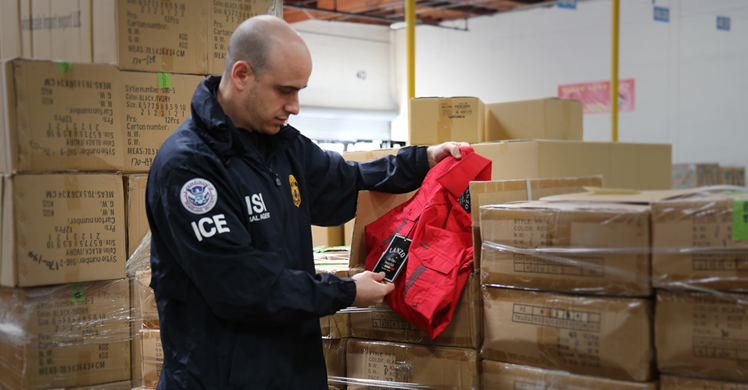Congressional hearing highlights dangers of counterfeit goods
WASHINGTON – U.S. Immigration and Customs Enforcement’s (ICE) top intellectual property rights enforcer told the Senate Judiciary Committee yesterday that the illegal importation, distribution and sale of counterfeit products pose a significant and growing threat to health and safety.
Bruce Foucart, director of the ICE-led National Intellectual Property Rights Coordination Center (IPR Center), testified to the dangers of fake goods during a hearing to discuss counterfeits and their impact to consumer safety. He sat on a panel of experts that included representatives from the U.S. Patent and Trademark Office, Global Intellectual Property Center (GIPC), Proctor and Gamble and Revision Military.
Committee leadership acknowledged that counterfeiting is a worldwide problem that impacts American business, presents health and safety hazards and funds criminal organizations, and that the growth of the Internet has created new opportunities to deceive consumers. Members challenged the panel to provide solutions to the growing problem of IP theft.
Foucart said IP enforcement training and education for local and state law-enforcement agencies was key to minimizing counterfeiting, and mentioned a recent public service announcement developed by the National Crime Prevention Council that brought together federal and state organizations to highlight the threat of IP theft. He referenced a successful joint case between ICE’s Homeland Security Investigations (HSI) and Department of Defense investigative agencies, in which a suspect was sentenced to three years in federal prison for selling counterfeit goods to the military, and noted enhanced coordination between federal agencies was leading to quality seizures and arrests.
David Hirschmann, President and CEO of GIPC, said there are signs intellectual property protection is improving. Chinese customs authorities have made improvements to IP enforcement, U.S. businesses are developing innovative techniques to protect their brands and the establishment of the Intellectual Property Enforcement Coordinator at the White House has been helpful, he said.
Founded in 2000, the IPR Center – formally codified in the Trade Facilitation and Trade Enforcement Act of 2015 – is one of the U.S. government's key weapons in the fight against criminal counterfeiting and piracy. The center uses the expertise of its 23 member agencies to share information, develop initiatives, coordinate enforcement actions, and conduct investigations related to IP theft. Through this strategic interagency partnership, the IPR Center protects the public's health and safety, the U.S. economy and the war fighters.


